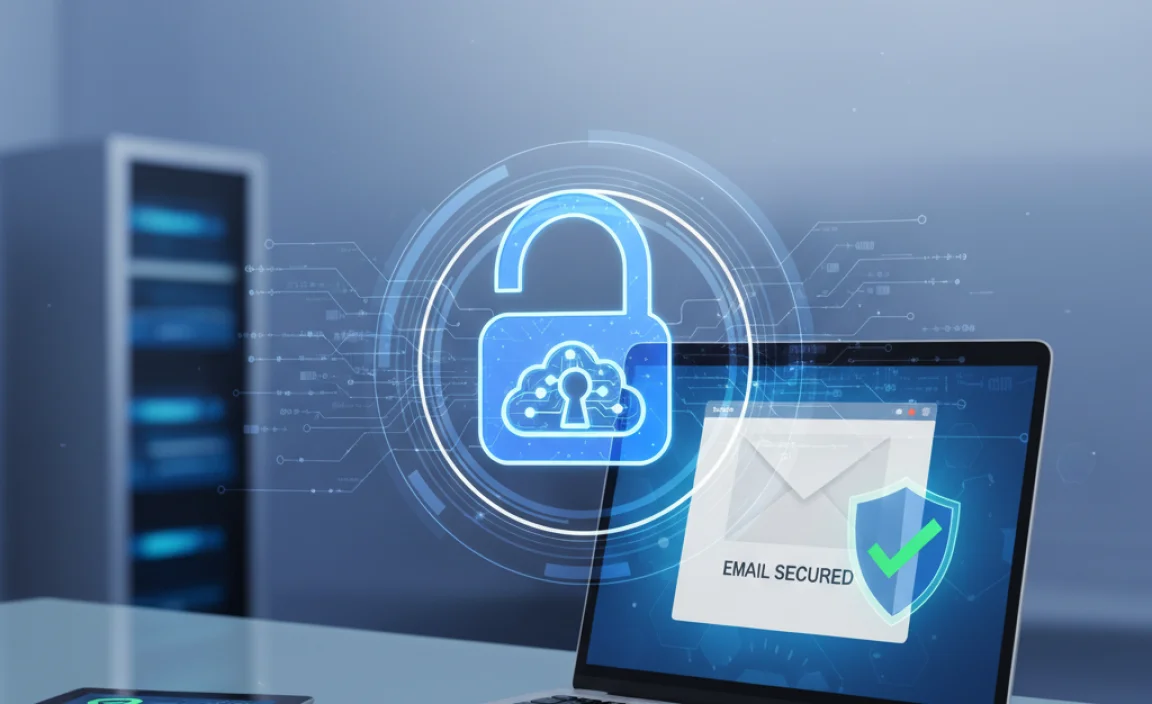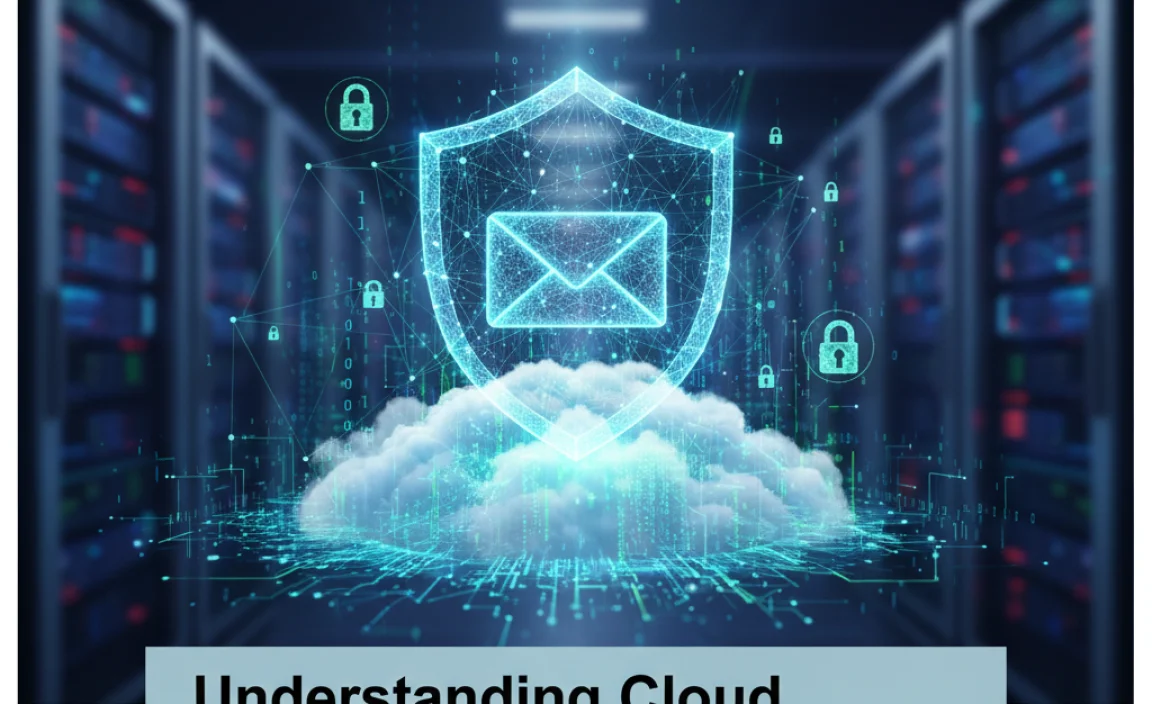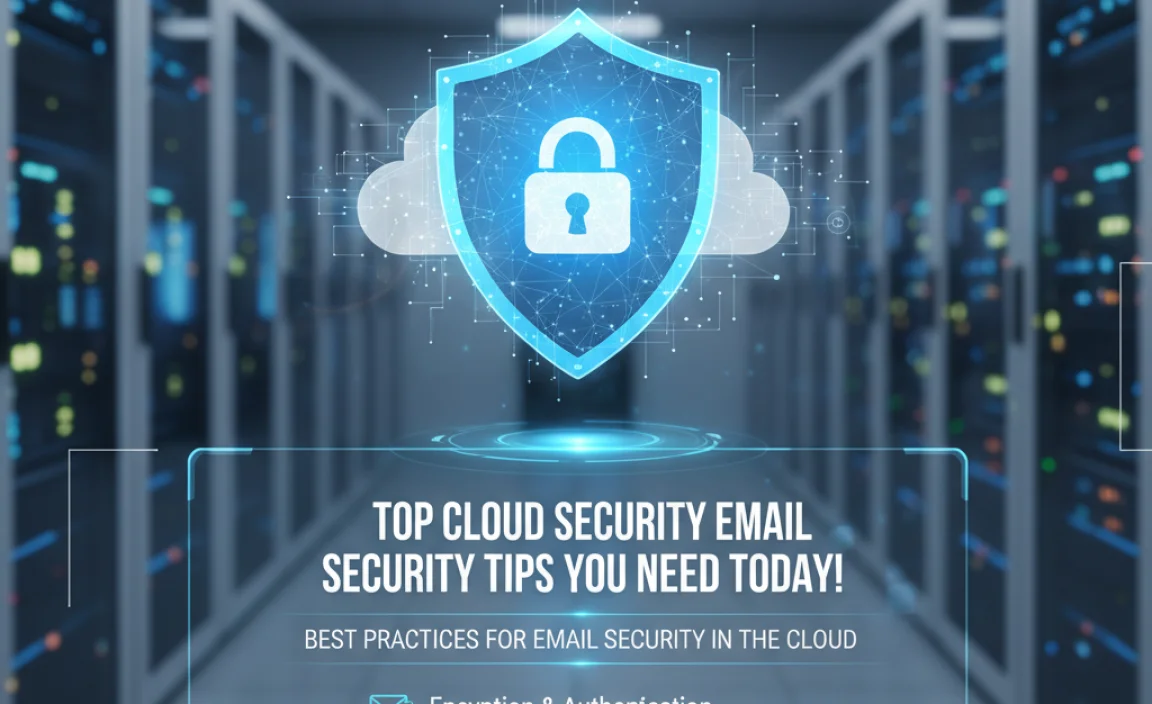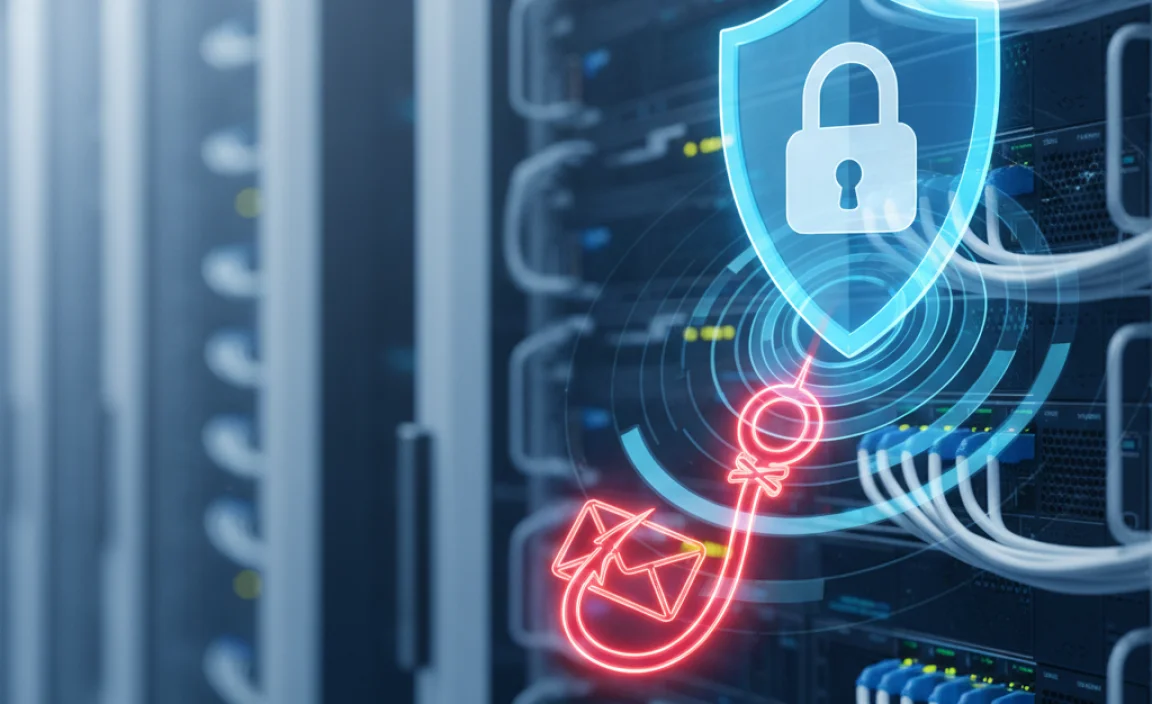Imagine sending an important email, only to find it didn’t reach your friend. What if that email contained secrets or personal information? Scary, right? In our digital world, cloud security and email security cannot be overlooked. Every day, millions of people use email, but many forget about their safety. Did you know that nearly 90% of cyberattacks begin with an email? That fact alone should make you pay attention!
In this article, we will explore essential tips for keeping your emails secure in the cloud. From using strong passwords to recognizing phishing scams, these tips will help you protect your digital life. So, are you ready to learn how to keep your online communication safe and sound? Let’s dive into the world of cloud security and uncover smart email security strategies!
Cloud Security: Essential Email Security Tips For Protection

Cloud security is essential for keeping your emails safe. Did you know most cyber attacks start with an email? First, enable multi-factor authentication (MFA) to add an extra layer of protection. Use strong, unique passwords for your accounts to make it harder for hackers to gain access. Regularly update your software to fix security holes. Educate yourself on spotting phishing emails. These simple steps can save you from a lot of stress and keep your information secure!
Understanding Cloud Security in Email Services

Definition of cloud security and its importance in email systems. Common threats to cloudbased email services.
Cloud security protects data stored online. It is very important for email systems. Good security helps keep your messages safe from prying eyes. Did you know? In 2023, 83% of businesses reported email attacks. Common threats include:
- Phishing attacks
- Malware
- Account hacking
- Data breaches
By understanding these risks, you can better protect your email.
What is cloud security?
Cloud security involves tools and strategies to protect data stored in the cloud. Secure email services keep your information safe from various online dangers.
Why is cloud security important?
It helps prevent data theft and unauthorized access. Good cloud security keeps private information private.
Key Features of Secure Email Services

Encryption methods and their role in protecting email content. Authentication protocols (e.g., MFA, SSO) to enhance security.
Email services need strong shields to keep our messages safe. One of the best defenses is encryption, which scrambles your emails so only the right people can read them. It’s like sending secret letters with invisible ink! Then, we have authentication protocols like Multi-Factor Authentication (MFA) and Single Sign-On (SSO). They add extra locks on your email door. Think of them as a two-headed guard dog that won’t let anyone sneak in!
| Feature | Description |
|---|---|
| Encryption | Hides your email content so only the receiver can see it. |
| MFA | Requires two forms of verification before letting you log in. |
| SSO | Allows access to multiple accounts with one login, making it easier and safer. |
With these tools, your email stays as safe as a squirrel with a stash of acorns!
Best Practices for Email Security in the Cloud

Regularly updating passwords and using strong password policies. Implementing twofactor authentication (2FA) for all accounts.
Keeping email safe in the cloud is important. One simple way is to regularly update passwords. Make sure your passwords are strong. Use a mix of letters, numbers, and special symbols. This helps stop hackers. Also, set up two-factor authentication (2FA) for extra protection. This means you need a code from your phone or another device to log in. By following these steps, you keep your information secure and reduce the chances of getting hacked.
Why is two-factor authentication important?
Two-factor authentication (2FA) adds an extra layer of security. It makes it harder for someone to access your account without permission.
Best password practices:
- Change passwords every 3-6 months.
- Use different passwords for different accounts.
- Make passwords longer and complex.
Identifying and Responding to Phishing Attacks

Signs of phishing attempts and how to recognize them. Steps to take in response to a phishing attack.
Phishing attacks can be sneaky. Watch for signs like strange emails or odd sender addresses. If it promises free pizza, but it’s from a bank, that’s a red flag! You may also notice spelling mistakes or urgent messages that say, “Act now!” If you think you’re under a phishing spell, follow these steps:
| Step | Action |
|---|---|
| 1 | Don’t click any links. |
| 2 | Report the email to your IT team. |
| 3 | Change your password immediately! |
Being cautious online is cool. Remember, a quick double-check can save your info and your lunch plans!
Data Loss Prevention (DLP) Strategies
Techniques for preventing unauthorized data leaks from email. Importance of email archiving and retention policies.
Data loss prevention is very important for everyone. One clear method to stop data leaks is using strong passwords and two-step verification. Also, keep software updated to close security gaps. Email archiving is essential. It saves important messages and can prevent loss. Without good archiving, data may be lost forever. Companies need solid retention policies. This keeps emails safe and ensures compliance with laws.
How can I prevent unauthorized data leaks from email?
Use strong passwords and enable two-factor authentication for extra protection.
Here are some key tips:
- Regularly update software.
- Train employees on security practices.
- Implement strict email retention policies.
- Utilize encryption for sensitive data.
Regular Security Audits and Compliance Measures
Conducting periodic security assessments of email systems. Understanding compliance requirements relevant to cloud email security (e.g., GDPR, HIPAA).
Keeping your email systems secure is not a once-a-year chore—it’s more like a monthly spa day for your tech. Schedule regular security checks to ensure everything runs smoothly. Are the locks tight? Is the door open to sneaky hackers? You bet! Compliance matters too. Understanding rules like GDPR and HIPAA keeps you safe from trouble. Here’s a quick look:
| Compliance Requirement | Key Points |
|---|---|
| GDPR | Protects EU citizens’ personal data. |
| HIPAA | Ensures health information privacy. |
So, remember, regular audits are like brushing your teeth—essential for keeping everything healthy and bright!
Employee Training and Awareness Programs
Importance of educating employees on email security best practices. Suggested training modules to enhance cyber awareness.
Training employees on email security helps protect businesses from threats. Knowledge gives workers the power to recognize scams. Regular workshops can cover key topics, making everyone more alert.
- Identifying phishing emails.
- Using strong passwords.
- Securing sensitive information.
- Practicing safe browsing habits.
Feeling informed boosts confidence. It helps employees to act quickly if something looks wrong. Remember, a secure workplace starts with well-informed staff.
Why is employee training on email security important?
Educating employees can reduce the chance of costly cyber incidents by up to 70%. Knowledge is key to staying safe online.
Suggested training modules:
Hands-on activities, live demonstrations, and quizzes can make learning fun and effective.
Future Trends in Cloud Email Security
Emerging technologies and how they impact cloud email security. Predictions for the evolution of email security threats and solutions.
The future of email security in the cloud looks bright and a little zany! New technologies, like AI and machine learning, are stepping up their game, making it tougher for pesky hackers. These technologies help spot threats faster than a squirrel on caffeine! However, threats evolve, too. Cybercriminals are always upping their tricks, like phishing scams that look as friendly as your favorite puppy.
Experts predict that in the coming years, more businesses will adopt automated solutions to protect their email. By 2025, it’s estimated that 60% of companies will use AI for security. Keeping emails safe will stay important, but using funny cat memes might not be the best defense!
| Emerging Tech | Impact on Email Security |
|---|---|
| AI & Machine Learning | Quickly identify threats |
| Automation | Streamline responses |
| Blockchain | Enhance data integrity |
Conclusion
In conclusion, protecting your emails in the cloud is essential. Use strong passwords and enable two-factor authentication. Be cautious of suspicious links and attachments. Regularly update your software to stay safe. By following these tips, you can keep your information secure. We encourage you to learn more about cloud security practices and stay informed. Your safety online matters!
FAQs
Certainly! Here Are Five Related Questions On The Topic Of Cloud Security And Email Security Tips:
Sure! Cloud security means keeping your information safe online. Email security helps protect your messages from bad people. Always use strong passwords, and change them often. Be careful with links in emails; they can be tricky. If something looks odd, it’s best to ask an adult for help.
Sure! Please share the question you’d like me to answer, and I’ll do my best to respond simply and clearly.
What Are The Best Practices For Securing Sensitive Data Stored In Cloud Services?
To keep your sensitive data safe in cloud services, use strong passwords that are hard to guess. Turn on two-step verification. This means you add an extra code after your password. Always update your software to fix security holes. Lastly, share your data only with trusted people.
How Can Organizations Implement Multi-Factor Authentication (Mfa) To Enhance Email Security?
Organizations can make email safer by using multi-factor authentication, or MFA. First, they ask you for your password. Then, they send a code to your phone that you also need to enter. This way, even if someone knows your password, they still can’t get in without your phone. It’s like having two keys to open a door!
What Are Some Common Email Phishing Attacks, And How Can Employees Be Trained To Recognize Them?
Some common email phishing attacks try to trick you into giving away personal information. They might look like messages from your bank or a website you use. These emails may ask you to click a link or provide your password. To help everyone recognize these scams, we can have training sessions. In these sessions, we can learn to spot fake emails and check where links go before clicking them.
How Does Encryption Protect Data In Transit And At Rest In Cloud Environments And Email Communications?
Encryption helps keep your data safe, both when it’s being sent (in transit) and when it’s stored (at rest). When you send a message, encryption scrambles your words so only the right person can read them. Think of it like a secret code that only you and your friend know. When your data is saved in the cloud, encryption keeps it safe from others, like a locked box that only you can open. This way, your information stays private and secure!
What Role Do Email Filters And Firewall Settings Play In Preventing Spam And Malicious Emails In A Cloud-Based Environment?
Email filters and firewall settings help keep your inbox safe. Filters look for bad emails, like spam or tricks. They automatically move these messages away from your inbox. Firewalls protect the whole system by blocking harmful content and unwanted access. Together, they make sure you only see safe emails.




